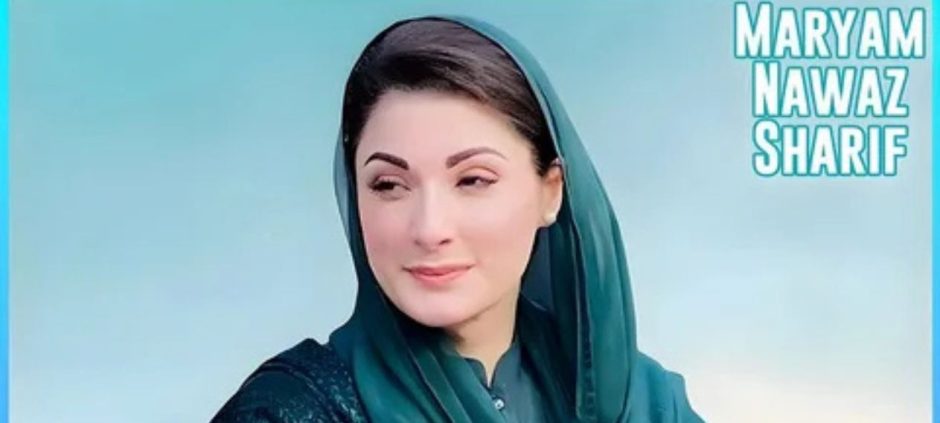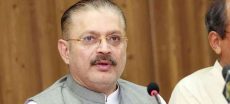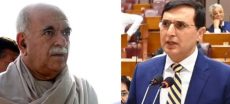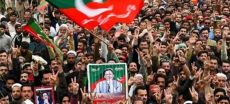Ever caught yourself scrolling through your phone and saving a clip of a speech or a rally, thinking: “Is this someone like me… or someone far removed?” That question matters in Pakistan today more than ever. For many young people, politics isn’t just about governance; it’s about identity, possibilities, and saying “I matter.” The name Maryam Nawaz Sharif pops up at that intersection where youth expectations and political legacy collide.
Who is Maryam Nawaz Sharif
Born in Lahore on 28 October 1973, Maryam is the daughter of Nawaz Sharif, three‑time prime minister of Pakistan. She rose from behind‑the‑scenes roles into visible leadership, eventually becoming the first woman Chief Minister of Punjab.
For a young Pakistani, her story can feel both familiar and distant: familiar because she’s using modern media and speaks to “our generation”; distant because her path was paved with name, network, and opportunity.
Her journey raises a basic question: if politics works like this for someone born into a dynasty, what message does that send to youth who start from zero?
What Political Dynasties Mean For Pakistani Youth Today
In our country, “political dynasty” is more than a phrase; it’s a lived reality. Families like the Sharifs, Bhuttos and others have dominated power corridors for decades. For youth, this shows up in two overlapping ways:
- Recognition: You know the names. It’s easier to trust someone you’ve heard of before.
- Barrier: You wonder whether your own voice stands a chance when legacy and lineage count so much.
When Maryam steps up with family backing and public presence, youth respond: with hope, with critique, with curiosity. They ask whether this is a change or just the same system wearing new clothes.
How Maryam Speaks To Youth
Maryam Nawaz Sharif isn’t hidden behind old‑school politics. She uses social media, engages young wings of her party, and takes strong stands in public. For example, she recently reaffirmed that Nawaz Sharif “will not step away from politics” and that she and her uncle are his “soldiers”.
That resonates: youth see someone who seems digitally savvy, youthful in energy, and daring in tone. But the voice still carries the weight of a dynasty, so it’s a mix: modern tools with old‑school inheritance.
What It Means For Youth Opinions On Politics
When youth watch Maryam Nawaz Sharif’s rallies, posts, or speeches, several things happen:
- They feel seen. “Hey, someone my age is in politics.”
- They feel skeptical. “Wait, name carried her here, what about me?”
- They feel inspired. “Maybe this legacy can work for change, not just status.”
This shapes opinions about voting, about belonging, about who gets to decide. The result? More youth might join politics, or sit out in silent frustration. The shift in youth mindset will reflect whether dynasties offer a platform or remain gatekeepers.
Imagine you’re in Lahore, Karachi, Islamabad, or any Pakistani town. You hear someone say: “Dynastic politics? It doesn’t affect me.” Then you scroll through Instagram and find Maryam Nawaz Sharif’s campaign clip. Instant dissonance. You just felt involved. That’s the power here.
Critique & Questions From Young Minds
No story of youth & dynasties is complete without a pitched critique. For Maryam Nawaz Sharif, the questions are real:
- Did her last name give her the ticket while many others sat in line?
- Is her political rise merit‑based or legacy‑based?
- Can she deliver for youth who don’t have wings yet, that is, jobs, voice, fairness?
Critics say her climb simply extends family control. Supporters say she’s changed with credentials. Both views exist, and by noticing both, youth become active rather than passive.
What This Means For Pakistan’s Political Landscape & The Next Generation
The relationship between dynasties and youth isn’t fixed. It can shift. If Maryam and her circle deliver youth programmes, promise change in real terms, mentoring and openings beyond name, they might convert the dynasty into a bridge to the future.
If not, youth might drift toward alternate voices, social movements, and tech‑driven platforms. The key: will legacy politics evolve or keep repeating old patterns?
For you as a youth: ask, engage, debate. Politics isn’t just about who wins, it’s about who gets to play, who’s heard, who’s changed.
Your Turn To Speak Up
Maryam Nawaz Sharif embodies a unique mix of legacy and youthful outreach in Pakistan’s political world. She stands where tradition meets new energy and where youth expectations meet historical power. Whether this mix becomes empowering or limiting depends on how her story interacts with youth voices.
Now it’s over to you: Do dynastic politics open doors for youth or bar them? What role will you play: watcher, voter, voice, or activist? Share the blog and your thoughts with friends, and spark the debate. Because when youth opinions shift, a nation’s politics can follow.











